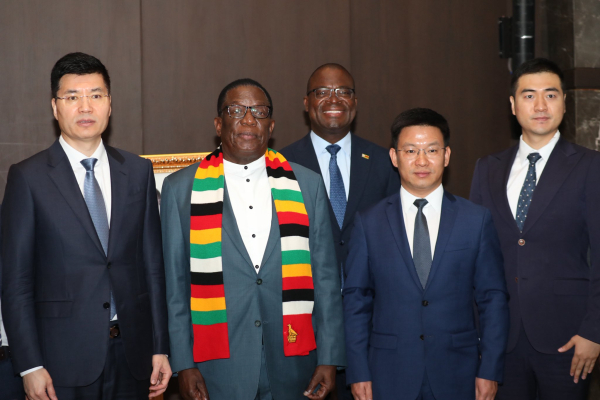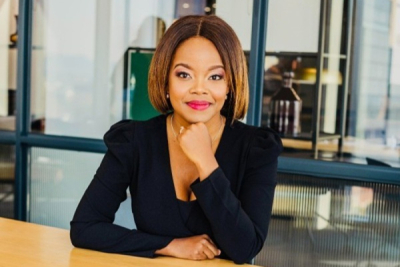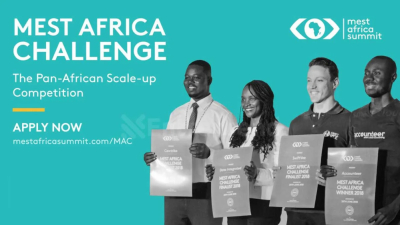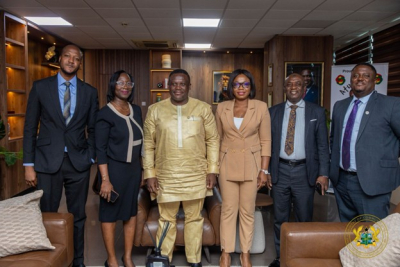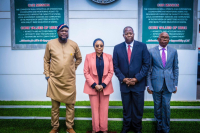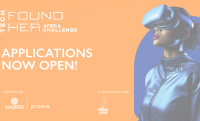The platform aims to solve the problems of fragmented financial services, slow transactions, and monthly payment limits.
Zepay, a fintech solution developed by a Nigerian startup, allows users to pay bills, make bank transfers, and earn loyalty points that can be converted into cashback or discounts, all with no transaction limits. The company was founded in 2025 by Daniel Charles-Iyoha.
“Our differentiation lies in zero transaction limits, reward-based engagement, and a future-ready investment layer,” said Charles-Iyoha.
The platform integrates core banking functionalities through partnerships with a Nigerian bank and a local fintech company. Zepay is also preparing to launch savings and investment options, including stocks and mutual funds.
“Early traction includes successful MVP deployment, integration of core banking features, and partnership activations,” Charles-Iyoha stated. “While exact user numbers aren’t public yet, we’re seeing growing engagement through our app ecosystem, with promising retention driven by the rewards system.”
Adoni Conrad Quenum
- Zimbabwe, Huawei discuss expanding ICT talent development cooperation
- Plans include digital training center aligned with 2030 strategy
- No formal deal signed; talks follow prior LinkedIn, UAE partnerships
The Zimbabwean government is looking to deepen its cooperation with Huawei to develop digital talent, a key topic during discussions on Monday, September 1, between President Emmerson Mnangagwa and senior officials from the Chinese technology company during an official visit to China.
The proposed collaboration includes expanding investments in ICT talent and establishing a digital training center. This initiative aligns with Zimbabwe’s national digital transformation strategy for 2030, where one of the three main pillars is the development of digital skills and capacity building. The government has previously identified the lack of ICT skills and low digital literacy as major challenges to the country's digital transformation.
In response, Zimbabwe has sought out multiple partnerships. In August 2024, the government signed an exploratory agreement with LinkedIn to develop the digital skills of civil servants and young people through the "LinkedIn Learning" platform. In April 2025, a program to train 1.5 million citizens in programming and artificial intelligence was launched with support from the United Arab Emirates as part of the “Zimbabwe Digital Skills Program.”
During that program's launch, authorities said they wanted to lay “the foundations for a future-oriented workforce proficient in cutting-edge technologies.” The World Bank estimates that 230 million jobs in sub-Saharan Africa will require digital skills by 2030. Zimbabwe faces high rates of unemployment and underemployment, particularly among young people, with the unemployment rate estimated at 35% in 2021.
While Huawei has stated it “remains committed to playing a central role in Zimbabwe’s digitalization agenda,” no new formal agreement has been signed or announced at this time.
Isaac K. Kassouwi
As a marketing graduate, she chose to innovate in the digital space. She is focused on digitizing the healthcare sector, with a particular emphasis on services for women.
Thato Schermer is a South African entrepreneur and co-founder of Zoie Health, a digital clinic focused on women’s health and wellness.
Founded in 2021 by Schermer and Nonie Sitole, Zoie Health provides virtual consultations, a community forum, specialized resources, and an online pharmacy for ordering medications and other health products. Its services cover family planning, fertility, maternity, and mental health.
In 2024, Schermer also co-founded Yola, a subscription-based startup that offers access to health and wellness providers through a WhatsApp and AI-powered platform. Yola primarily targets workplace healthcare.
A graduate of the University of Cape Town with a bachelor’s degree in marketing and economics, Schermer began her career in 2013 as a client business development intern at Procter & Gamble in South Africa. In 2014, she joined the World Bank Group as an intern before becoming a management consultant at McKinsey & Company the following year.
In 2016, she was named Executive Associate to the CEO of Discovery Vitality, a program that encourages employees to adopt healthier behaviors. From 2018 to 2019, she worked at Life Healthcare, serving as both Chief of Staff to the CEO and Head of Strategy and Business Development.
Melchior Koba
The research initiative represents a strategic launchpad toward a digital future that empowers citizens and transforms sectors across the economy.
Nigeria will launch 75 new research projects on October 1, 2025, as part of a broader push to deepen its digital ecosystem, foster innovation, and establish the country as a leading tech hub in Africa.
Minister of Communications and Digital Economy, Bosun Tijani, announced the plan at GITEX Nigeria 2025 being held from September 1-4. The initiative, coordinated by the National Information Technology Development Agency (NITDA), targets researchers, startups, corporates, and the Nigerian diaspora.
“On October 1, there will be a research scheme that will support another 75 research projects. Such investments will reinforce Nigeria’s position in the global digital economy,” Tijani said. He added that startups and corporates should leverage government support to contribute to national and global innovation.
Tijani emphasized that robust digital infrastructure is now a vital national priority. He called for a shift in strategy beyond catching up with others to fostering resilient systems that sustain long-term innovation.
The October 1 research rollout continues a legacy of impactful initiatives from NITDA. In 2022, NITDA launched a blockchain scholarship program in partnership with Domineum Blockchain Solutions, training 30,000 Nigerians in blockchain technologies and offering top participants incubation opportunities in London.
At the 2024 Digital Nigeria Innovation Challenge, NITDA awarded ₦16 million in prizes. Top winner InfraMappers developed an AI-powered mapping solution to optimize healthcare facility distribution nationwide.
NITDA’s Research & Development Department, established in 2022, actively promotes emerging technologies — including AI, blockchain, and IoT — through collaboration, funding, and commercialization strategies. These successes underscore NITDA’s capacity for maximizing impact through research investments.
By investing in targeted research — especially in AI, fintech, e-health, and agri-tech — Nigeria can accelerate homegrown innovation that addresses real-world needs and boosts global competitiveness.
Supporting researchers, startups, and diaspora talent positions Nigeria to build a more inclusive and resilient digital ecosystem. The October research initiative represents a strategic launchpad toward a digital future that empowers citizens and transforms sectors across the economy.
Hikmatu Bilali
MEST Africa, in partnership with Absa, has launched the MEST Africa Challenge (MAC) 2025, a Pan-African pitch competition for early-stage technology startups. The programme offers entrepreneurs access to equity funding, strategic networks, and global visibility, with the winner set to receive $50,000 in equity funding.
The 2025 edition focuses on fintech and related value chains, with solutions spanning payments, alternative lending, fraud detection, agri-tech, insurtech, and super-apps. Eligible startups must be less than three years old, generate at least $5,000 in monthly recurring revenue for six months, and have raised no more than $1 million in cumulative funding.
Applicants must operate in Botswana, Uganda, Mauritius, Seychelles, Kenya, Mozambique, Zambia, or Ghana, with at least two co-founders. Applications close on 26 September 2025.
By establishing a direct payment framework with TikTok, GCB could eliminate inefficiencies, ensure creators keep more of their earnings, and unlock new opportunities in the fast-growing digital economy
Ghana Commercial Bank (GCB) has proposed a new payment framework aimed at ensuring Ghanaian TikTok creators receive their earnings seamlessly and securely. The initiative was tabled during a courtesy call on September 2 by a GCB delegation, led by Chief of Staff Abraham Ferguson, to the Minister for Communication, Digital Technology, and Innovations, Hon. Samuel Nartey George (MP).
The bank positioned itself as a potential official payment gateway for TikTok payouts in Ghana, citing its extensive infrastructure and readiness to support the creative economy. According to Ferguson, GCB’s connectivity with global payment networks such as MasterCard and Visa, alongside its ability to process payouts through MoMo wallets and direct bank accounts, makes it well-placed to manage cash-outs and gift revenues for creators. He noted, “The bank's primary aim is to find a way for Ghanaians to get paid for their content and manage cash-outs for gifts received.”
Hon. Samuel Nartey George strongly endorsed the proposal during the meeting, which also included TikTok’s West Africa representative, Ms. Tokumbo Ibrahim. He argued that routing creator payments through GCB Bank would eliminate reliance on costly third-party intermediaries, allowing Ghanaian talent to retain more of their earnings.
For TikTok, Ms. Ibrahim committed to reviewing the feasibility of the partnership. Should the proposal move forward, GCB Bank said it is prepared to immediately begin technical and regulatory processes to establish a direct connection with TikTok. This would include setting up integration teams and formalising a framework with relevant financial authorities.
The move comes at a time when TikTok is experiencing rapid growth in Africa, becoming a major platform for young creators to build audiences and monetize content. In Ghana, TikTok has not only reshaped entertainment but also created new opportunities in advertising, influencer marketing, and e-commerce. However, one of the biggest challenges remains ensuring creators can access their earnings in a transparent, cost-effective way.
TikTok’s growing influence in West Africa makes the proposed GCB Bank partnership particularly significant. The region now accounts for 41.5 million active TikTok users — 2.6% of the global total, according to Datareportal— making it the second-largest TikTok market in Africa after Northern Africa (5.7%). This underscores the platform’s massive role in shaping digital culture and entrepreneurship across the subregion.
For Ghanaian creators, a localized payment framework could unlock a share of this fast-expanding market, ensuring they are not disadvantaged compared to peers in Nigeria, Kenya, or South Africa who already benefit from more established payout systems. If implemented, the GCB-TikTok collaboration could strengthen Ghana’s position as a hub in the regional digital economy, enabling creators to monetize effectively and tap into the IFC-forecasted $712 billion contribution Africa’s digital economy could add to GDP by 2050.
Hikmatu Bilali
-
Nigeria, DLN ink deal to supply 47M laptops, tablets for schools
-
Hybrid internet plan: 5G, local telecoms, Starlink satellites
-
Success hinges on broadband, funding, and teacher training
Nigeria has signed a landmark agreement to roll out what could become Africa’s largest digital education program, aiming to provide laptops and tablets to nearly 47 million students and teachers.
UBEC and Digital Learning Network (DLN) have signed a landmark MoU to launch the National Digital Education Transformation Project.
— AISHA GARBA (@AishaMGarba) September 2, 2025
In line with the Renewed HOPE agenda of President Bola Ahmed Tinubu, this pioneering public-private partnership will deliver digital devices,… pic.twitter.com/SY8KjpW4Ep
The Universal Basic Education Commission (UBEC) and U.S.-based Digital Learning Network (DLN) signed a memorandum of understanding in Abuja on Sept. 1 to launch the “Free Laptops” initiative. The project includes teacher training, regional hubs for device assembly and distribution, and hybrid internet infrastructure combining 5G, local telecoms, and SpaceX’s Starlink satellites. The plan targets minimum speeds of 50 Mbps for schools, even in rural areas.
“This initiative is more than just technology. It is a promise of access, equity, and opportunity for every Nigerian child,” UBEC Executive Secretary Aisha Garba said.
Less than half of Nigeria’s public primary schools currently have digital equipment. The government aims to equip 95% of Nigerians with digital skills by 2030, in line with President Bola Ahmed Tinubu’s “Renewed Hope” agenda.
While the project underscores Nigeria’s push for digital inclusion and education-led economic growth, success will hinge on overcoming challenges including uneven broadband access, sustainable financing, and adequate teacher training.
Samira Njoya
Global technology group Naspers and its international arm Prosus have announced the launch of the Tech FoundHER Africa Challenge, a competition aimed at backing women-led tech and tech-enabled startups across the continent.
Three outstanding women founders will share US$100,000 in equity-free grants to scale their businesses, while participants also gain access to senior mentors within the Naspers-Prosus ecosystem and networking opportunities. To cap it off, six shortlisted founders will pitch at the Johannesburg Stock Exchange on 19 November 2025.
Applications are open. Eligible startups must be focused on technology or tech-enabled products, have at least one woman founder in a leadership role, be at or before the Series B funding stage, and be revenue-generating with proven market traction.
The National Telecommunications Institute (NTI) has signed new cooperation agreements with Pianat.ai, a provider of AI-driven governance, risk and compliance solutions, and Digital Fortress EG, a cybersecurity education company, to advance Egypt’s digital talent pipeline.
The partners will design training content tailored to both local and international market needs. Students and graduates of the Digital Egypt Youth – HireReady initiative will gain hands-on training opportunities within the companies, while NTI trainees will receive professional certification.
The partnerships reflect NTI’s commitment to bridging the skills gap in AI, data analytics, and ICT, while fostering collaboration with the private sector to empower Egyptian youth.
Drawing on more than 15 years of experience in fintech and telecommunications, he is a tech entrepreneur committed to revolutionizing Africa's financial sector.
DRC tech entrepreneur Fabrice Kabongolo Lukumu founded Araka, an electronic payment platform that facilitates online financial transactions with an emphasis on speed, security, and accessibility for both users and merchants.
Launched in 2019, Araka enables individuals to perform various payments and transactions through its digital platform. Users can pay bills, buy phone credit, or transfer money between different mobile money operators and banks.
The platform also offers a payment gateway (API) that merchants can integrate into their e-commerce sites to accept mobile and Visa card payments. Among its features, Araka includes a chatbot that allows all platform operations to be performed directly via WhatsApp, making the service accessible anytime, anywhere.
Lukumu holds a bachelor’s degree in international business and economics from Aston University in England, which he earned in 2008. He began his professional career in 2009 at the sports platform Sportshq as a strategic client manager.
In 2011, he joined the audit and consulting firm PwC as an auditor. Between 2012 and 2014, he worked at Helios Towers Africa, a London-based telecommunications company, where he served as both a financial manager and a senior client manager in Kinshasa. From 2019 to 2023, he was the business and product development manager at Rawbank in Kinshasa.
Melchior Koba
More...
The Egyptian fintech company aims to become a leading platform in the MENA region. Built on blockchain technology, it integrates both business-to-business and business-to-customer approaches.
Munify, a new Egyptian fintech solution, aims to become a leading neobank for diaspora communities and international professionals. Built on blockchain technology, it integrates business-to-business and business-to-customer approaches to offer a comprehensive financial platform.
The company provides a mobile application available on both iOS and Android, which offers a full suite of financial tools. These include multi-currency accounts (USD, with EUR and GBP coming soon), non-custodial wallets, and virtual USDC cards for secure global payments and fund transfers. Users can also issue invoices directly from the platform.
Munify is designed to solve the challenges of expensive, time-consuming, and fragmented cross-border payments. The company builds its own "banking rails," which directly connect financial systems across different countries. This native architecture allows Munify to offer faster transactions with reduced fees, avoiding traditional channels like Western Union or MoneyGram. The solution also provides access to U.S. banking services with a simple local ID.
Founded in 2024 by Khalid Ashmawy, the fintech startup recently secured $3 million in a funding round to accelerate its engineering efforts, enhance regulatory compliance, and expand regionally. The company is part of the Summer 2025 cohort of the California-based accelerator Y Combinator, which participated in the funding round alongside BYLD and Digital Currency Group.
Adoni Conrad Quenum
He is one of the African entrepreneurs aiming to make a significant impact on the digital sector. His career highlights the rise of local initiatives focused on transforming access to training across the continent.
Chadian tech entrepreneur Valery Kagro (photo) is the co-founder and CEO of PayiSkoul, an education-focused neobank based in Abidjan, Côte d’Ivoire, dedicated to financing and digitizing the education sector.
Founded in 2024, PayiSkoul aims to simplify the payment of school and training fees by accommodating the financial constraints of students and their families. The platform offers a digital wallet linked to bank accounts and Visa cards, allowing users to pay for tuition, housing, and educational materials in installments. It also includes services such as educational cashback, micro-savings, and microcredit for student projects.
For partner institutions, PayiSkoul provides an automated dashboard for payment tracking, managing due dates, and sending reminders to streamline the relationship between schools and families.
Before PayiSkoul, Kagro launched Genoskul in 2020, an edtech startup offering remote learning, a tutoring service, and an intelligent assistant to answer user questions.
Kagro holds a bachelor's degree in computer science from the University of Ngaoundere in Cameroon, which he earned in 2019. He also holds a certificate in artificial intelligence from the Virtual University of Senegal and a data analysis certificate from OpenClassrooms.
His professional career began in 2019 with an internship in the IT department of Chad’s Public Treasury. In 2022, he joined the United Nations Development Programme in his home country as the technology lead for the Youth Innovation Program.
Between 2022 and 2024, he served as a technical manager at Izipay, a Cameroonian fintech company. Concurrently, he was the technology director for Allô’Bailleurs, an Ivorian platform connecting tenants and landlords, and the technical and coordination manager for Central Africa at DAWN, an edtech company based in Lagos, Nigeria.
Melchior Koba
• Japan to train 30,000 AI experts in Africa by 2028
• Program includes AI courses in universities, $5.5B in development loans
• Strategy targets job creation, green energy, and rivals China’s influence
Japan plans to train 30,000 artificial intelligence (AI) experts in Africa over the next three years to accelerate the continent’s economic digitization and create jobs, Japanese Prime Minister Shigeru Ishiba announced Wednesday, August 20, 2025.
"Japan's goal is to support the training of 30,000 AI experts over the next three years to promote digitization and create jobs," Ishiba said in a speech opening the 9th Tokyo International Conference on African Development (TICAD-9), held in Yokohama, 40 kilometers south of Tokyo. The conference runs through Friday, August 22.
Ishiba also stated that Japan would share its digital expertise to "co-create solutions" for challenges facing Africa.
According to government sources cited by Japan’s Kyodo News agency, Tokyo intends to launch courses on AI and data science at African higher education institutions. This effort will be in cooperation with Yutaka Matsuo, a professor at the University of Tokyo’s Graduate School of Engineering and a leading Japanese AI expert.
These courses will be offered at dozens of universities in several countries, including Kenya and Uganda, and will focus primarily on integrating AI into the manufacturing, agriculture, and logistics sectors, the sources said.
In addition to developing AI talent, Ishiba revealed that Japan will train 300,000 people in other fields, including 35,000 in healthcare and medicine, over the next three years. The Japanese prime minister also proposed the creation of an "economic zone" linking the Indian Ocean to Africa, which would "contribute to Africa's integration and industrial development." He pledged to promote free trade and private investment on the continent.
Japan's strategy aims to differentiate itself from China
Ishiba also announced that Japan will provide loans of up to $5.5 billion to several African countries in coordination with the African Development Bank (AfDB) to promote sustainable development and address debt issues. The Japan International Cooperation Agency (JICA) and private financial institutions also plan to provide $1.5 billion in impact investments to help African nations reduce greenhouse gas emissions and meet sustainable development goals.
Unlike previous TICAD conferences, which have been held every three years since 1993, the Japanese government did not announce the total amount of funds it plans to inject into African economies over the next three years.
By focusing on investments in human capital, green energy, and improving living conditions, Japan is seeking to distinguish its approach from that of its powerful rival, China. In recent years, China has increased its influence on the continent by providing massive funding, often in the form of loans for infrastructure projects that have contributed to excessive debt in several countries.
According to Ecofin Agency, leaders from about 50 African countries are attending TICAD-9, including Nigerian President Bola Tinubu, South African President Cyril Ramaphosa, and Kenyan President William Ruto.
• Nigeria, DLN launch national “Free Laptops” program for students
• Plan targets 47M beneficiaries, with devices, training, and 50 Mbps access
• Project aims to bridge digital divide, modernize public education
Nigeria’s Universal Basic Education Commission (UBEC) and U.S. company Digital Learning Network (DLN) signed a memorandum of understanding on Monday in Abuja to launch a national “Free Laptops” program. The initiative aims to provide digital devices to nearly 47 million students and teachers across the country.
“This initiative is more than technology, it is a promise to every Nigerian child: a promise of access, equity, and opportunity,” said Aisha Garba, UBEC’s executive secretary. “By bridging the digital divide, we are unlocking unlimited potential and positioning Nigeria as a leader in educational innovation in Africa.”
The agreement also includes provisions for teacher training, the creation of regional hubs for assembling and distributing the laptops and tablets, and the deployment of a hybrid internet infrastructure. This network will combine 5G, local telecommunication providers, and SpaceX’s Starlink satellite constellation. The goal is to guarantee a minimum speed of 50 Mbps for schools, including those in the most remote rural areas.
This initiative is part of a broader strategy to modernize Nigeria’s public education system, where fewer than half of all public primary schools currently have digital equipment. The government aims to equip 95% of Nigerians with digital skills by 2030, in line with President Bola Ahmed Tinubu’s Renewed Hope agenda.
Touted as Africa’s largest digital education project, the program could boost digital inclusion in a country still grappling with a significant digital divide. It could also promote technological self-reliance by developing local infrastructure and serve as a catalyst for educational and economic transformation.
However, its success hinges on the ability to overcome several challenges, including unequal access to high-speed internet, securing sustainable funding, and providing adequate teacher training to ensure effective adoption of the digital tools.
Samira Njoya



